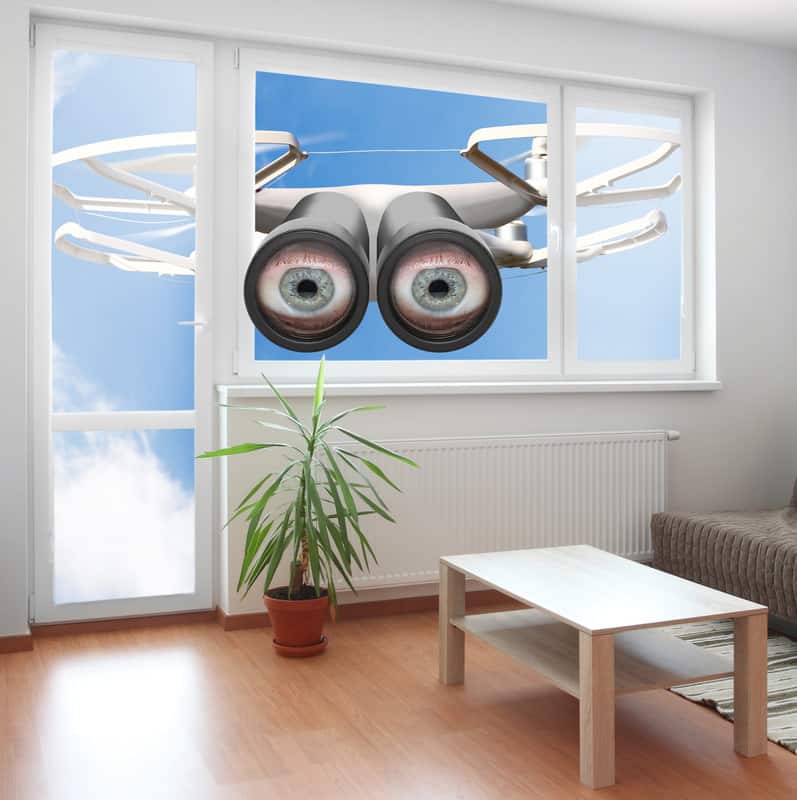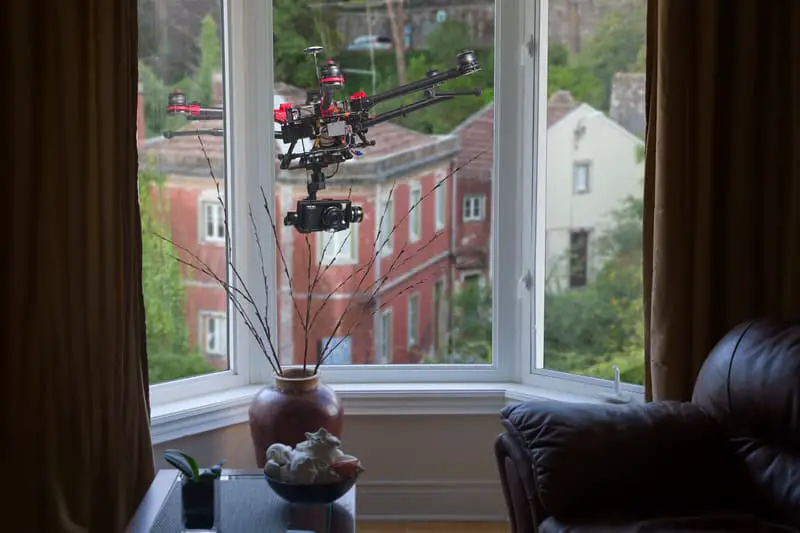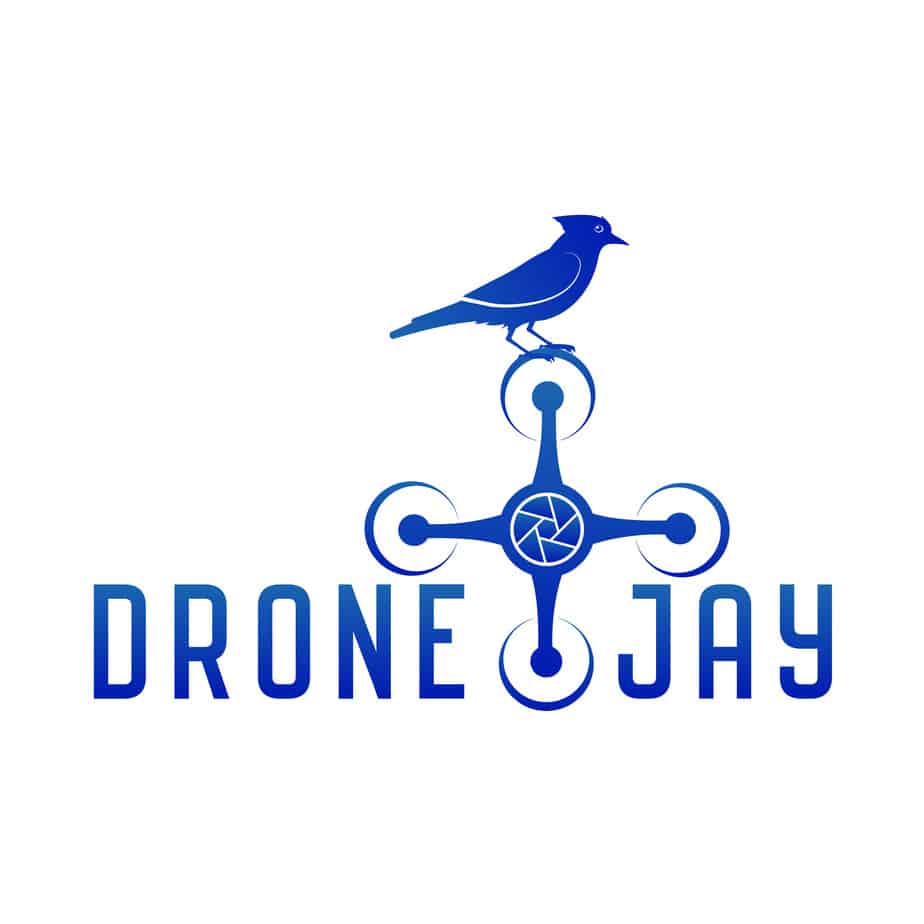
It’s not too surprising to find something flying over your backyard. We’re all familiar with birds, neighbors’ kites, and similar objects. But, how would you feel if you got out of your house only to find a drone buzzing by overhead?
You might feel like your privacy is invaded a bit and wonder are drones even allowed fly over my property?
There’s a lot of debate and varying information on this matter flying around the internet. The short answer is, Yes, a drone can fly over your property and if it is FAA-approved or flying within its legal limits, there’s a high chance you can’t do anything about it. But, you can always file a lawsuit if it’s directed towards you or used against you in any way. Much depends on your state law.
There are some conflicting law regarding the FAA (Federal Aviation Administration) and state laws. But let’s dive a little deeper and see how they compare.
Why Are Drones Causing Arguments?
Drones are causing a lot of arguments throughout the world. It’s been a sensitive subject since it came out because people don’t know how to deal with it. Moreover, most people don’t know their rights regarding the matter.
Opinions differ widely on this matter. There’s a large portion of people who think a drone can’t fly over their private properties. They believe that as long as their rights stand, they can reject the trespassing of any object up to 500 ft. over their grounds.
On the other hand, drone enthusiasts think that there should be rights to protect a drone’s owner and allow him to fly his unit anywhere. They think that such technology can cause a breakthrough in the future of worldwide aviation. So, it should be supported by the law rather than being restricted.
What the Federal Aviation Administration Has to Say About It
Four years ago, the FAA decided to release a circular (letter/advisement released to everyone) regarding the use of Small Unmanned Aircraft Systems; stating that using these objects must be according to title 14 of the Code of Federal Regulations.
However, the document leaves some questions unanswered. For starters, they left out the restrictions of flying drones over private property, which kind of misses the whole point of the argument.
Secondly, they didn’t clarify the aerospace ownership rights of house owners. So, up to this moment, the FAA owns all aerospace. No one can claim such ownership, which consequently means no one can take action against flying objects.
That way, if your property is not located on restricted airspace, you may not be able to complain about trespassing drones.
How About the ‘Heaven to Hell’ Law?
Until 1946, there was an English law that gave landowner control over everything above and below his land. It’s called ‘Heaven to Hell’ because it dictates ownership over everything between heaven and hell.
This law no longer stands in American courts. Mainly because it’d mean that no electrical wires would be allowed to pass under homes, which is inapplicable in the 21st century!

How Much Control Do Landowners Have Over Flying Drones?
According to the Air Commerce Act, the government has complete control over navigable airspace, which is about 500-1000 ft. from the ground, according to each area. Also, this airspace includes takeoff and landing areas.
Furthermore, according to some state laws, a landowner has control over anything that threatens or trespasses over his property. This includes hunters, drones, and view obstructions. However, it’s not in the same all states. The National Conference of State Legislatures shows the information on varying UAS (Unmanned Aerial Systems/ drones) laws. Check it out here.
For example, in Florida, drones aren’t allowed to fly over private properties for surveillance purposes. Moreover, Arkansas and California don’t allow the use of drones if it films someone without consent. In Nevada, the law is a bit different; drones aren’t allowed if they’re accompanied by weapons.
The thing is, all these laws are rendered useless if the issue has to do with navigable airspaces. In the end, the FAA has the final word regarding anything that has to do with it. In fact, if they want to fly aircraft over any altitude below 500 feet, they can do it without your approval.
What Actions Can You Take Against Drones Over Your Property?
Although the FAA’s 500 feet law won’t be useful if there’s a drone flying out of your window, there are some actions you could still take according to your Private Rights of Action.
Private Nuisance
The first thing you should do in this case is to address the matter in a friendly way. If your neighbor, or whoever is flying a drone over your house doesn’t respond, you have the right to file a lawsuit against neighbor nuisance.
The drone’s whirring sound in this case can be considered a nuisance, which gives you the right to complain.
Privacy Invasion
Privacy invasion has been the strongest suit against the legislation of drones so far. As laws in Arkansas and California dictate, drones are invading your privacy if they’re used to film you without your consent. Consequently, you can file a privacy invasion lawsuit against their owner.
That’s if you can prove the owner was using it for recording you.
Trespassing Objects
Whereas it’s a bit tricky, you can consider the drone a trespassing object and file a lawsuit against it. If it’s close enough to your windows, you can make your case at the court.

The tricky thing about it is that there’s no law stating the definite height that landowners own. However, as long as the drone is flying outside your neighbor’s boundaries, it’s trespassing over your property.
When Can You Consider a Drone Trespassing Over Your Property?
Here’s the thing, the FAA’s laws are contradicting the states’ laws. Or in other words, the FAA’s laws are a loophole, because you can consider anything a trespassing object unless it’s approved by them. What does that mean for you?
Well, if the drone is flying over your property without the FAA’s approval, that’s when you can consider it a trespassing object. Also, if you’re living in a state that prohibits drones, you’ll have more privilege and you’ll be able to take action.
However, if the drone is approved by the FAA, or isn’t causing you nuisance, you can’t prove that it’s trespassing.
How Can You Prove A Drone Trespass Over Your Property?
The good thing about trespassing is that it doesn’t have to include loss or damage to your property. You can prove a trespass if it involves any kind of interference with your private land, even if you weren’t harmed in the process.
There are four main points that determine whether an object is trespassing or not:
Land
If you’re a landowner, it means that your land includes the space above it and below it. So, if a drone is flying low enough that you’re seeing it out of your window, it’s considered a trespasser.
On the other hand, if it’s flying in a height where you can’t see it, you can’t prove a trespass because it’s unlikely to be filming you.
Exclusive Ownership
Exclusive ownership means your possession of a piece of land for the time being. If you’re a house owner, a border owner, or a renter, you have your full rights as an exclusive owner.
That means that you can resort to the law if you have a trespassing issue. However, if the drone is flying over a public place near your house, you don’t have exclusive ownership in this case.
Direct Interference
In order to prove a trespass over your private land, it has to be direct interference with your property. But, what does a ‘direct’ interference mean?
It means that it can’t be a result of some incidence. It has to be directly and unreasonably invading your privacy, such as flying around your windows or hovering around your house. Otherwise, you can’t make your case.
Deliberate or Negligent Interference
Along with the interference being direct, it has to be deliberate or negligent in order for it to be eligible for complaints. This means that the trespass can’t be proven unless the drone’s actions show so.
For example, if the person is intending to fly the drone over your house to invade your privacy, you can complain against him. Additionally, if he’s negligent or careless to the fact that he’s causing you nuisance, this also gives you the right to prove it as trespass and complain.
The Verdict
We know that it’s a tricky subject that’s been causing a lot of debates lately, but there’s an answer to everything.
To answer your question; yes, a drone can fly over your property. Also, if it’s FAA-approved or flying within its legal limits, there’s a high chance that you can’t do anything about it.
But, you can always file a lawsuit if it’s directed towards you or used against you in any way. In the end, it depends on your state law.
